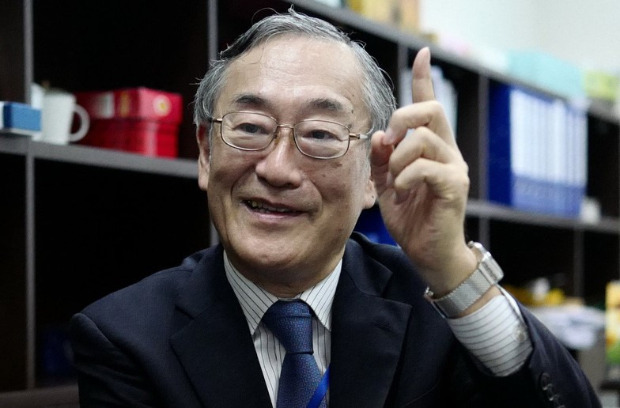Prof. Dr. Furuta Motoo – Rector of Vietnam Japan University seems to have predestined relationship with Vietnam over the last decades. He shared with Tuoi Tre newspaper the cultural and social differences between Japan and Vietnam.
Everything started when he was one the first foreign tourists to the Northern Vietnam in 1974.
A vibrant Vietnam
* What encouraged you to visit Vietnam in 1974?
– My university graduation thesis was in history and its topic was on the August Revolution of Vietnam which Japan was involved in. I continued with Vietnam wars in my higher education.
Therefore I tried to join the first Japanese tourist delegation to Vietnam when the Paris Agreement was signed and the Northern Vietnam had their peace. I visited Hanoi, then Ha Long bay, Hai Phong, Hoa Binh, etc. then.
* Is there any other reason that makes you interested in Vietnam in addition to the involvement of Japan in the August Revolution?
– At that time, the resistance war against America was fierce. Vietnam became the symbol of national liberation movement in the world. Journals of Japan and the world in general delivered news of Vietnam everyday.
I thought Vietnam was the focus of the world then. I believed I would learn a lot of things if I studied and visited Vietnam.
* You returned to Vietnam a number of times after that. Is it fair to say that this country not only elicits your curiosity for discovery as it originally did, it attracts you indeed?
– Yes, it is correct. I tried to return to Vietnam in 1977 when I was a researcher on Vietnam war. I volunteered to teach Japanese for student of Foreign Trade University in this country.
I returned to Japan due to my work arrangements after one year, and came back to Vietnam as a teacher in 1980.
I love your country when I became more understanding of it later on. Vietnam is vibrant with passionate people and dynamic developing society and I love to be in such country.

Prof. Dr. Furuta Motoo – Rector of Vietnam Japan University – Photo: N. KHANH
Disciplinary is not an innate characteristic
* What changes in Vietnam do you see these days in comparison with in 1980s?
– I was impressed of the defined structured society in Vietnam in 1974 when I first came here. I saw disciplined military training practice in Hanoi and Hai Phong. The traffic was in order then. The situation changed dramatically when I returned three years later when Vietnam had been liberated and unified.
I found that Vietnamese people went whatever directions they wished on the street, but the traffic, surprisingly, was smooth like running water. However, now it is more chaotic than it was that time.
* What is the most chaotic activity in Vietnam in your viewpoint?
– I think it is transportation.
* Is it correct that the Vietnamese are weak at what the Japanese are strong at? Is discipline the Japanese’s feature, which can be reflected in the queuing habit?
– Many foreigners praise Japanese for their habit of queuing in order. I don’t think that this discipline is the Japanese inborn characteristic.
When I was young, no one queued for the train in Tokyo. The number of train passengers increased so much that they could not get onto or get off the train without queuing. That was in early 1970s that the Japanese started queuing for the train.
Hence the queuing habit roots from the requirements of real life and is a result of education. Children in Japan are now educated of such things nowadays.
Vietnamese people has good community traditions. I believe that discipline and teamwork are not difficult for the young Vietnamese people.
* What are the positive aspects you find in Vietnam?
– I see a opposite fact in Vietnam in comparison to Japan. Japanese people are more disciplined and the leadership plays greater role, while in Vietnam people is the strong motivation.
Vietnamese people are holding critical role in innovation. The power is from grassroot level rather than top-down direction. There once was a good lesson learnt from the implementation of the “Resolution No. 10”, which proves the terrific power of the people at grassroot level. We can see that one thing is not always good or bad.
* Recently, people talk a lot about the picture which shows Mr. Hiroaki Honjo, General Director of Idemitsu Q8 Petroleum LLC. bowing to say welcome and goodbye to his customers who come for fuel refill in Hanoi. Many Vietnamese people thinks that Vietnam should learn from this adorable culture of Japan. What do you think about this thought?
– I am very proud to see the behaviors of Japanese people have been highly appreciated by many Vietnamese people. And it makes me think that Vietnamese people will become more responsive to do such things if you highly appreciate and support such behavior.
Nurturing good vision and big dreams
* You are now coming to Vietnam as the leader of a university, which of the Japanese cultural aspects that you want to convey to your students?
– Japanese family and schools are paying much attention to basic ethic education, traffic disciplines and teamwork (work and collaborate with each other in groups). I would bring to our Vietnamese students the discipline and teamwork mindset of the Japanese.
* What is your thought about the Vietnamese students now and those you taught 40 years ago?
– The Vietnamese people had to undergo a number of wars in the 20th century. The Vietnamese people become diligent and patient by such circumstances. In comparison to my students of 40 years ago, the students nowadays are more dynamic and active.
They have good conditions to nurture their good vision and pursue their greater dreams. As educators, we want to encourage the young people to equip themselves with good vision for their future.
* Liberal arts education encourages young people to nurture their great dreams and creates educational basis to facilitate their adaptation to the quick changes of society after their graduation. Is it the reason for your desire to promote this educational philosophy?
– A number of experts project that at least two third of the current jobs will no longer exist in the next 20 years. It will be difficult for the students to find a job, develop their career and adapt to the changes of the society after their graduation if we continue to provide only professional trainings.
I also faced with such critics when I was the rector of Liberal Arts School of the University of Tokyo.
The enterprises gave us their response which was different from such critics. Liberal arts education proves their valuable effects only when the workers become key staff of the enterprises. Education needs to bring about people who are capable of making significant changes and contribute to the sustainable development of the society.

